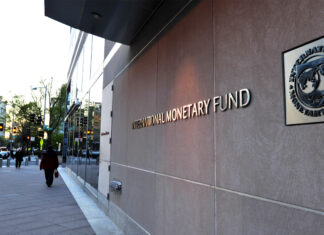The year 2022 was brutal for Pakistan. Political and constitutional chaos, double-digit inflation, the rising dollar, reserves reaching record lows and talks about the country defaulting on its debt obligations were the highlights of the year. To top it off, Pakistan’s IT sector, which was widely perceived as an engine that would drive the country’s economic growth, posted sluggish development.
There is a fall in the growth rate of Pakistan’s IT export-based remittances and then the startup sector, which had brought in amounts north of $380 million in 2021, saw this growth slashed in 2022. The year ended with a total of $355 million raised in disclosed funding across 57 deals by Pakistan’s startups in 2022, according to data compiled by VC and insights firm Invest2Innovate (i2i).
The last quarter or Q4 of the previous year recorded the lowest amount of funding during the last four years, raising only $15 million according to i2i. This was 78% down, compared to the same quarter last year. Quarter-on-quarter growth fell consistently last year. In Q1 of 2022, startups raised $172 million across 22 deals, which fell to $102 million across 15 deals in the next quarter. In Q3 of 2022, startups raised $65 million across 14 deals with the last quarter of the year only accounting for the remaining $15 million out of the total $355 raised during the entire year.
Fintech and ecommerce were the top performing sectors in 2022. Ecommerce startups managed to raise the highest amount of funding, raking in $185 million. Notable raises were by Bazaar which announced a $70 million raise, Dastgyr did $37 million whereas Jugnu announced closing a $22.5 million round.
On the fintech side, startups raised $101 million across 15 deals, compared to 13 deals in the ecommerce segment.
According to Data Darbar, a startups insights firm, Series A funding recorded the highest funding value of $133.5 million in 2022, followed by seed funding at $83.35 million and Series B funding at $80 million. On the other hand, most of the deal activity remained concentrated in the initial stages: 19 pre-seed rounds and 18 seed rounds.
Last year also witnessed some of the biggest casualties in Pakistan’s startup ecosystem. One of the biggest and most prominent startups, Airlift, ceased operations in the middle of last year. Later on, mobility startup SWVL also shut operations in Pakistan. Other startups that shut down operations are VavaCars and CarFirst.
The global funding crunch was the common denominator behind these startups shutting down.
The federal reserve in the US started aggressively increasing interest rates to fight inflation at home, prompting investors to move money to safer pastures. Divertment of investments towards less risky avenues has had investors question business fundamentals of startups and bid on startups that have the ability to turn profitability. Startups, however, were earlier encouraged by the same investors to generate higher valuation at the cost of sustainability. The shift in sentiment of investors sent startups scrambling, requiring founders to adjust their models to become profitable and in turn sustainable.
However, not all startups had tested their sustainability in the absence of VC funding and when funding ran low, startups either had to choose to scale down rapidly or shut down altogether. The global investment scene in the world took a further hit because of the Ukraine war. For Pakistan, the situation has been worse since this kind of frontier market is not a priority market for foreign investors. Moreover, local investors are not rich enough to support startups’ growth ambitions on their own.
Over the past couple of years, startups have done very well for themselves. To list a few of their achievements; the startup ecosystem in Pakistan had managed to raise record amounts of funding in 2021, put Pakistan on the radar of major foreign investors, capture the imaginations of the nation, secured high valuations and curate a workforce composed of young, driven, and talented individuals who would become problem solvers in the future.
However, rising inflation, a global recession and a major military conflict have pushed the dizzying highs experienced by tech-startups in Pakistan towards abysmal lows. But despite these troubles, corporations, investors, and other stakeholders still expressed support and showed confidence in Pakistan’s startup potential, according to i2i. “This was seen through a wave of collaborations on various fronts – both local and international. More broadly, this sheds light on how far the ecosystem has progressed since its nascence nearly a decade ago,” the report noted.
The question now is what 2023 will look like. The i2i report shows that the world will be moving towards a global recession as global interest rates will remain relatively high for most part of the year.
“The startup ecosystem will see more pain than in 2022, as many startups will run out of capital with no incremental funding in sight most likely before Q2 2024. Those that survive will be the funnel for the next investment cycle,” said Faisal Aftab, co-founder and managing director, Zayn Capital.
So 2023 is going to be tougher for startups and Pakistan should expect more startup casualties because of the funding crunch and macroeconomic doom at home. Advice for startups remains the same: Focus on increasing runway as much as possible while improving unit economics.
























